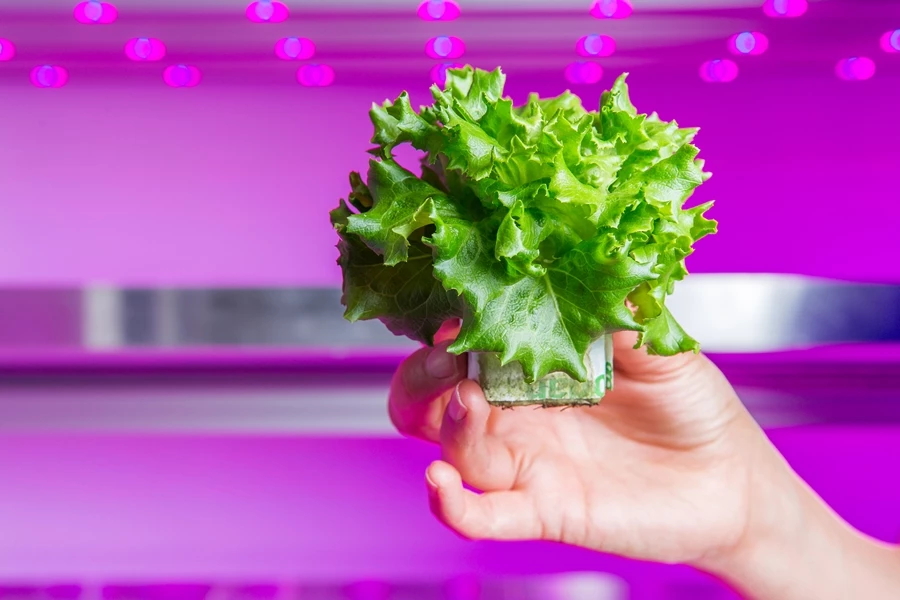Philips has opened a new facility for developing tailored LED "light recipes" for indoor farming. The GrowWise City Farming research center in Eindhoven, the Netherlands, will be used to study how light can maximize the quality and yield of different crops. The aim is to help producers grow tasty and healthy food indoors all year round.
"Our aim is to develop the technology that makes it possible to grow tasty, healthy and sustainable food virtually anywhere," explains global director of city farming at Philips Gus van der Feltz. "The research we are undertaking will enable local food production on a global scale, reducing waste, limiting food miles and using practically no land or water."
Inner city indoor farms, such as London's Growing Underground, are exactly the sort of places that could benefit from the research. The conditions at Growing Underground, for example, are closely matched by those at the new research center.
The 234 sq m (2,519 sq ft) facility, which is said to be one of the world's biggest, is a clean and sterile environment and is totally closed to natural light and air. This means that the growing conditions are fully controllable.

Philips GreenPower LED lighting is used, which the firm says is highly energy efficient and produces less heat than other LED lighting, meaning it can be be placed closer to plants for optimal positioning and uniform illumination. Crops are planted in four-layered mechanized racks and there are eight rooms with set climactic conditions.
Research is focused in particular on leafy vegetables, strawberries and herbs. Light conditions for growing carbohydrate-rich crops like wheat and potatoes indoors are also being studied.
Source: Philips







